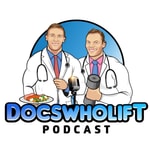Info Matters – Détails, épisodes et analyse
Détails du podcast
Informations techniques et générales issues du flux RSS du podcast.

Info Matters
Information and Privacy Commissioner of Ontario
Fréquence : 1 épisode/36j. Total Éps: 42

Classements récents
Dernières positions dans les classements Apple Podcasts et Spotify.
Apple Podcasts
🇨🇦 Canada - government
09/08/2025#95🇨🇦 Canada - government
08/08/2025#76🇨🇦 Canada - government
07/08/2025#56🇨🇦 Canada - government
06/08/2025#31🇨🇦 Canada - government
04/08/2025#89🇨🇦 Canada - government
03/08/2025#70🇨🇦 Canada - government
02/08/2025#48🇨🇦 Canada - government
01/08/2025#47🇨🇦 Canada - government
31/07/2025#36🇨🇦 Canada - government
27/07/2025#89
Spotify
Aucun classement récent disponible
Liens partagés entre épisodes et podcasts
Liens présents dans les descriptions d'épisodes et autres podcasts les utilisant également.
See all- https://www.ipc.on.ca/
41 partages
- https://infomatters.simplecast.com/
37 partages
- https://youtu.be/WEeL0bh0tj0
2 partages
- https://youtu.be/fKPRQhNPNaI
2 partages
Qualité et score du flux RSS
Évaluation technique de la qualité et de la structure du flux RSS.
See allScore global : 83%
Historique des publications
Répartition mensuelle des publications d'épisodes au fil des années.
Why mediation matters: Improving outcomes in FOI appeals | L'importance de la médiation : Améliorer les résultats des appels en matière d'accès à l'information
Saison 4 · Épisode 6
vendredi 30 août 2024 • Durée 37:43
Addressing intimate partner violence: Information sharing, trust, and privacy | Lutter contre la violence conjugale : Échange de renseignements, confiance et confidentialité
Saison 4 · Épisode 5
mercredi 31 juillet 2024 • Durée 30:47
A woman’s right to know: Closing the gender gap with access to information // Le droit de savoir d'une femme : Combler le fossé entre les hommes et les femmes grâce à l'accès à l'information
Saison 3 · Épisode 6
lundi 25 septembre 2023 • Durée 37:04
Laura Neuman is a Senior Advisor with the Carter Center in Atlanta, Georgia. She leads the implementation of the center’s Inform Women, Transform Lives campaign.
Prior to joining the Carter Center in 1999, she was staff attorney at Legal Action of Wisconsin and is a graduate of the University of Wisconsin Law School.
- The journey from a law practice assisting disadvantaged groups to working at the Carter Center [3:05]
- The mandate of the Carter Center [4:18]
- The access to information legislation assessment tool — what it does and how it works [5:36]
- Focusing on gender inequality in access to information [8:15]
- Barriers for women seeking access to government-held information [13:40]
- Reaching women in an intentional way with information that can help them in their day-to-day lives [16:17]
- Statistics on the impact of improved access to information for women [18:41]
- Expansion of programming to cities in North America [23:28]
- Battling misinformation with trusted information and recognizing the digital divide [30:45]
Resources:
- Inform Women, Transform Lives (The Carter Center’s campaign to raise awareness of women’s right to information)
- Demystifying the FOI process (Info Matters episode)
- Trust and truth: Navigating the age of misinformation (Info Matters episode)
- File an appeal and pay fees online (IPC service)
- IPC Strategic Priorities 2021-2025
- Privacy and Transparency in a Modern Government(IPC resources)
Info Matters is a podcast about people, privacy, and access to information hosted by Patricia Kosseim, Information and Privacy Commissioner of Ontario. We dive into conversations with people from all walks of life and hear stories about the access and privacy issues that matter most to them.
If you enjoyed the podcast, leave us a rating or a review.
Have an access to information or privacy topic you want to learn more about? Interested in being a guest on the show? Send us a tweet
or email us at
The information, opinions, and recommendations presented in this podcast are for general information only. It should not be relied upon as a substitute for legal advice. Unless specifically stated otherwise, the IPC does not endorse, approve, recommend, or certify any information, product, process, service, or organization presented or mentioned in this podcast, and information from this podcast should not be used or reproduced in any way to imply such approval or endorsement. None of the information, opinions and recommendations presented in this podcast bind the IPC’s Tribunal that may be called upon to independently investigate and decide upon an individual complaint or appeal based on the specific facts and unique circumstances of a given case.
Co-designing digital health systems with patients and families | Concevoir des systèmes de santé numériques en collaboration avec les patients et les familles
Saison 3 · Épisode 5
jeudi 31 août 2023 • Durée 27:45
Ethical Uses of Genetic Data: A Conversation with Dr. Bartha Knoppers | Les utilisations éthiques des données génétiques : entretien avec Bartha Knoppers, Ph. D.
Saison 3 · Épisode 4
lundi 31 juillet 2023 • Durée 39:55
Dr. Bartha Maria Knoppers is a world-renowned expert and pioneer in the field of health law and bioethics, with particular focus on genomics. Her groundbreaking work has fundamentally changed our understanding of the complex intersection between science law, technology and ethics. She currently serves as the Director of the Centre for Genomics and Policy at McGill University, collaborating with international organizations, governments and policymakers to help shape ethical guidelines that safeguard human rights while supporting the health and well-being of individuals and communities.
- Genetic exceptionalism [03:46]
- Use of genetic information in healthcare [05:50]
- Genome sequencing and predicting health outcomes [6:23]
- Parental consent for newborn screening [10:45]
- Privacy considerations for genomic sequencing for health research [12:39]
- Biobanks and the use of data for health research [14:45]
- Governance, transparency, and accountability in health research [18:40]
- Considerations for data sharing among academic and commercial researchers [20:41]
- P3G public population project in Genomics and Society [24:05]
- The Global Alliance for Genomics and Health (Canada) [26:58]
- Canadian Health Data Strategy [29:11]
- Canada Health Data Charter [33:10]
- Advice on promoting trust in digital health [35:07]
Resources:
- Centre for Genomics and Policy (CGP)
- McGill Genome Centre
- The Public Population Project in Genomics (P3G)
- The Global Alliance for Genomics and Health (GA4GH) meeting (September 2023)
- Digital Health under PHIPA: Selected Overview
- IPC Strategic Priorities 2021-2025
- Trust in Digital Health(IPC resources)
Info Matters is a podcast about people, privacy, and access to information hosted by Patricia Kosseim, Information and Privacy Commissioner of Ontario. We dive into conversations with people from all walks of life and hear stories about the access and privacy issues that matter most to them.
If you enjoyed the podcast, leave us a rating or a review.
Have an access to information or privacy topic you want to learn more about? Interested in being a guest on the show? Send us a tweet @IPCinfoprivacy or email us at podcast@ipc.on.ca.
The information, opinions, and recommendations presented in this podcast are for general information only. It should not be relied upon as a substitute for legal advice. Unless specifically stated otherwise, the IPC does not endorse, approve, recommend, or certify any information, product, process, service, or organization presented or mentioned in this podcast, and information from this podcast should not be used or reproduced in any way to imply such approval or endorsement. None of the information, opinions and recommendations presented in this podcast bind the IPC’s Tribunal that may be called upon to independently investigate and decide upon an individual complaint or appeal based on the specific facts and unique circumstances of a given case.
The information, opinions, and recommendations presented in this podcast are for general information only. It should not be relied upon as a substitute for legal advice. Unless specifically stated otherwise, the IPC does not endorse, approve, recommend, or certify any information, product, process, service, or organization presented or mentioned in this podcast, and information from this podcast should not be used or reproduced in any way to imply such approval or endorsement. None of the information, opinions and recommendations presented in this podcast bind the IPC’s Tribunal that may be called upon to independently investigate and decide upon an individual complaint or appeal based on the specific facts and unique circumstances of a given case.
A casual conversation between two Canadian privacy commissioners | Une conversation informelle entre deux commissaires canadiens à la protection de la vie privée
Saison 3 · Épisode 3
mercredi 5 juillet 2023 • Durée 40:44
Philippe Dufresne, Privacy Commissioner of Canada, is a leading legal expert on human rights, administrative, and constitutional law. He previously served as the Law Clerk and Parliamentary Counsel of the House of Commons. The Office of the Privacy Commissioner of Canada (OPC) oversees compliance with the Privacy Act, which covers the personal information-handling practices of federal government departments and agencies, and the Personal Information Protection and Electronic Documents Act (PIPEDA), Canada’s federal private-sector privacy law.
- One-year anniversary, stepping into a new role as privacy commissioner of Canada [1:45]
- Three years as Ontario’s information and privacy commissioner [4:26]
- Adapting to the hybrid workplace model [6:34]
- Rhythms of work throughout the year [9:02]
- From human rights lawyer to privacy commissioner of Canada [10:46]
- The fast-moving dialogue about privacy issues [12:24]
- Making the switch from federal to provincial regulator [14:02]
- Why it’s a pivotal time for privacy protection [18:52]
- Artificial intelligence, Bill C-27, Digital Charter Implementation Act [19:34]
- Harnessing the power of AI for good [22:37]
- A modern and effective regulator for a digital Ontario [23:39]
- Preparing to implement a new law in a continuing state of uncertainty [25:52]
- Closing gaps in privacy protection for Ontario workers [29:45]
- Federal-provincial collaboration: education, privacy protections for children and youth [33:21]
- Federal-provincial collaboration: enforcement and investigations, raising public awareness of privacy issues [36:19]
Resources:
- Bill C-27, Digital Charter Implementation Act, 2022
- Appearance before the Standing Committee on Access to Information, Privacy and Ethics (ETHI) on the Study of Device Investigation Tools Used by the RCMP (Opening statement by Philippe Dufresne, August 8, 2022)
- Investigation into Home Depot of Canada Inc.’s compliance with PIPEDA (OPC, January 26, 2023)
- A pivotal time for privacy (Office of the Privacy Commissioner of Canada,
2021-22 Annual Report to Parliament) - Canadian Digital Regulators Forum established to better serve Canadians in the digital era (news release, June 9, 2023)
- The vision of a modern and effective regulator (IPC 2022 annual report)
- Joint statement by the Information and Privacy Commissioner of Ontario and the Ontario Human Rights Commission on the use of AI technologies (May 25, 2023)
- IPC Strategic Priorities 2021-2025
Info Matters is a podcast about people, privacy, and access to information hosted by Patricia Kosseim, Information and Privacy Commissioner of Ontario. We dive into conversations with people from all walks of life and hear stories about the access and privacy issues that matter most to them.
If you enjoyed the podcast, leave us a rating or a review.
Have an access to information or privacy topic you want to learn more about? Interested in being a guest on the show? Send us a tweet @IPCinfoprivacy or email us at podcast@ipc.on.ca.
The information, opinions, and recommendations presented in this podcast are for general information only. It should not be relied upon as a substitute for legal advice. Unless specifically stated otherwise, the IPC does not endorse, approve, recommend, or certify any information, product, process, service, or organization presented or mentioned in this podcast, and information from this podcast should not be used or reproduced in any way to imply such approval or endorsement. None of the information, opinions and recommendations presented in this podcast bind the IPC’s Tribunal that may be called upon to independently investigate and decide upon an individual complaint or appeal based on the specific facts and unique circumstances of a given case.
The information, opinions, and recommendations presented in this podcast are for general information only. It should not be relied upon as a substitute for legal advice. Unless specifically stated otherwise, the IPC does not endorse, approve, recommend, or certify any information, product, process, service, or organization presented or mentioned in this podcast, and information from this podcast should not be used or reproduced in any way to imply such approval or endorsement. None of the information, opinions and recommendations presented in this podcast bind the IPC’s Tribunal that may be called upon to independently investigate and decide upon an individual complaint or appeal based on the specific facts and unique circumstances of a given case.
Trust and truth: Navigating the age of misinformation | Confiance et vérité : S’y retrouver dans l’ère de la mésinformation
Saison 3 · Épisode 2
mardi 16 mai 2023 • Durée 32:08
Dr. Alex Himelfarb is the chair of Council of Canadian Academies’ Expert Panel on the Socioeconomic Impacts of Science and Health Misinformation. He chairs the board of the Narwhal and is a member of the boards of Atkinson Foundation, the Public Service Foundation and the Advisory Committee of the Auditor General, and is a fellow of the Broadbent and Parkland Institutes.
- Choosing to lead the expert panel on science and health misinformation [2:30]
- Misinformation has become a defining issue of our time, why? [3:56]
- Social media, declining trust, and the quest for certainty [4:17]
- Fault lines in modern society [7:08]
- Socioeconomic impacts of science and health misinformation [8:57]
- Impact of misinformation on vulnerable and marginalized communities [11:00]
- With the rise of AI, what does the future hold? [12:36]
- Telltale signs of misinformation [14:29]
- Impact of misinformation on democracy [16:00]
- The role of government transparency and access to information in fighting misinformation [19:02]
- How individuals can fight back against misinformation [22:04]
- Building critical thinking, numeracy and media literacy into curriculum in schools [25:20]
- Communicating information more accessibly [26:14]
- Encouraging proactive disclosure by government institutions [28:13]
Resources:
- Fault Lines(Report of the Expert Panel on the Socioeconomic Impacts of Science and Health Misinformation, Council of Canadian Academies, January 26, 2023)
- Verified (United Nations project to improve access to accurate information)
- IPC Transparency Showcase sheds light on open government projects (IPC news release, May 11, 2023)
- Ontario Information and Privacy Commissioner calls on public institutions to join the Transparency Challenge (IPC news release, September 28, 2023)
- IPC Strategic Priorities 2021-2025
Info Matters is a podcast about people, privacy, and access to information hosted by Patricia Kosseim, Information and Privacy Commissioner of Ontario. We dive into conversations with people from all walks of life and hear stories about the access and privacy issues that matter most to them.
If you enjoyed the podcast, leave us a rating or a review.
Have an access to information or privacy topic you want to learn more about? Interested in being a guest on the show? Send us a tweet @IPCinfoprivacy or email us at podcast@ipc.on.ca.
The information, opinions, and recommendations presented in this podcast are for general information only. It should not be relied upon as a substitute for legal advice. Unless specifically stated otherwise, the IPC does not endorse, approve, recommend, or certify any information, product, process, service, or organization presented or mentioned in this podcast, and information from this podcast should not be used or reproduced in any way to imply such approval or endorsement. None of the information, opinions and recommendations presented in this podcast bind the IPC’s Tribunal that may be called upon to independently investigate and decide upon an individual complaint or appeal based on the specific facts and unique circumstances of a given case.
The information, opinions, and recommendations presented in this podcast are for general information only. It should not be relied upon as a substitute for legal advice. Unless specifically stated otherwise, the IPC does not endorse, approve, recommend, or certify any information, product, process, service, or organization presented or mentioned in this podcast, and information from this podcast should not be used or reproduced in any way to imply such approval or endorsement. None of the information, opinions and recommendations presented in this podcast bind the IPC’s Tribunal that may be called upon to independently investigate and decide upon an individual complaint or appeal based on the specific facts and unique circumstances of a given case.
Predicting crimes before they occur: not so sci-fi anymore | Prédire les crimes avant qu’ils ne soient commis : ce n’est plus de la science-fiction
Saison 3 · Épisode 1
jeudi 23 mars 2023 • Durée 31:22
Christopher Parsons is a Senior Technology and Policy Advisor at the IPC. Prior to joining the IPC in early 2023, he was a Senior Research Associate at the Citizen Lab, an interdisciplinary laboratory based at the University of Toronto’s Munk School of Global Affairs and Public Policy.
- Choosing to focus on research related to privacy, national security, and public policy [2:38]
- The modernization of policing through technology [4:57]
- Defining the term predictive policing [7:19]
- Bail assessments as an example of predictive policing [8:33]
- Potentially problematic aspects of predictive technologies [9:34]
- Findings of the Citizen Lab’s Surveil and Predict report [11:11]
- Privacy and predictive policing [12:20]
- Human rights issues associated with predictive policing [14:18]
- Key recommendations of the Citizen Lab’s Surveil and Predict report [18:07]
- The need for openness and accountability when it comes to the use of predictive policing tools [21:09]
- Future issues on the horizon related to law enforcement practices and privacy in Ontario [26:26]
Resources:
- To Surveil and Predict: A Human Rights Analysis of Algorithmic Policing in Canada (Citizen Lab, September 1, 2020)
- ‘Algorithmic policing’ in Canada needs more legal safeguards, Citizen Lab report says (Toronto Star)
- Law Enforcement and Security Agency Surveillance in Canada: The Growth of Digitally-Enabled Surveillance and Atrophy of Accountability (Citizen Lab, February 26, 2018)
- Law Enforcement and Surveillance Technologies (IPC Privacy Day webcast)
- IPC Strategic Priorities 2021-2025
- Next-Generation Law-Enforcement (IPC resources)
Info Matters is a podcast about people, privacy, and access to information hosted by Patricia Kosseim, Information and Privacy Commissioner of Ontario. We dive into conversations with people from all walks of life and hear stories about the access and privacy issues that matter most to them.
If you enjoyed the podcast, leave us a rating or a review.
Have an access to information or privacy topic you want to learn more about? Interested in being a guest on the show? Send us a tweet @IPCinfoprivacy or email us at podcast@ipc.on.ca.
The information, opinions, and recommendations presented in this podcast are for general information only. It should not be relied upon as a substitute for legal advice. Unless specifically stated otherwise, the IPC does not endorse, approve, recommend, or certify any information, product, process, service, or organization presented or mentioned in this podcast, and information from this podcast should not be used or reproduced in any way to imply such approval or endorsement. None of the information, opinions and recommendations presented in this podcast bind the IPC’s Tribunal that may be called upon to independently investigate and decide upon an individual complaint or appeal based on the specific facts and unique circumstances of a given case.
The information, opinions, and recommendations presented in this podcast are for general information only. It should not be relied upon as a substitute for legal advice. Unless specifically stated otherwise, the IPC does not endorse, approve, recommend, or certify any information, product, process, service, or organization presented or mentioned in this podcast, and information from this podcast should not be used or reproduced in any way to imply such approval or endorsement. None of the information, opinions and recommendations presented in this podcast bind the IPC’s Tribunal that may be called upon to independently investigate and decide upon an individual complaint or appeal based on the specific facts and unique circumstances of a given case.
Health equity: Using data to make a positive difference for communities | Équité en matière de santé : Utiliser les données pour faire une différence positive pour les communautés
Saison 2 · Épisode 10
mardi 20 décembre 2022 • Durée 33:20
Dr. Kwame McKenzie is CEO of the Wellesley Institute, a professor in the Department of Psychiatry at the University of Toronto, and Director of Health Equity at the Centre for Addiction and Mental Health (CAMH).
- A professional journey combining psychiatry and leading a policy think tank [2:20]
- Mental health information, more sensitive that other kinds of personal health information? [5:08]
- The stigma around mental health issues and how it has evolved [6:53]
- Confidentiality, trust as key elements to achieving better health outcomes [8:33]
- Broader benefits to the health system through the use of health data [11:56]
- Using data to address COVID-19 fueled health inequities in Toronto
communities [16:50] - Ontario’s Anti-Racism Act and health data [19:06]
- Principles of the Engagement, Governance, Access, and Protection (EGAP) framework [25:49]
Resources:
- Monitoring progress: Race and vaccine equity (Wellesley Institute, May 27, 2021)
- Socio-demographic data collection and equity in covid-19 in Toronto (The Lancet, April 2, 2021)
- Engagement, Governance, Access, and Protection (EGAP) Framework
(Black Health Equity Working Group) - Building a better health system with data (Ontario Hospital Association)
- IPC Strategic Priorities 2021-2025
- Trust in Digital Health(IPC resources)
Info Matters is a podcast about people, privacy, and access to information hosted by Patricia Kosseim, Information and Privacy Commissioner of Ontario. We dive into conversations with people from all walks of life and hear stories about the access and privacy issues that matter most to them.
If you enjoyed the podcast, leave us a rating or a review.
Have an access to information or privacy topic you want to learn more about? Interested in being a guest on the show? Send us a tweet @IPCinfoprivacy or email us at podcast@ipc.on.ca.
Disclaimer: The information, opinions, and recommendations presented in this podcast are for general information only. It should not be relied upon as a substitute for legal advice. Unless specifically stated otherwise, the IPC does not endorse, approve, recommend, or certify any information, product, process, service, or organization presented or mentioned in this podcast, and information from this podcast should not be used or reproduced in any way to imply such approval or endorsement. None of the information, opinions and recommendations presented in this podcast bind the IPC’s Tribunal that may be called upon to independently investigate and decide upon an individual complaint or appeal based on the specific facts and unique circumstances of a given case.
The information, opinions, and recommendations presented in this podcast are for general information only. It should not be relied upon as a substitute for legal advice. Unless specifically stated otherwise, the IPC does not endorse, approve, recommend, or certify any information, product, process, service, or organization presented or mentioned in this podcast, and information from this podcast should not be used or reproduced in any way to imply such approval or endorsement. None of the information, opinions and recommendations presented in this podcast bind the IPC’s Tribunal that may be called upon to independently investigate and decide upon an individual complaint or appeal based on the specific facts and unique circumstances of a given case.
Back to the Future: Using strategic foresight in the new digital age | Retour vers le futur : Utiliser la prospective stratégique dans la nouvelle ère numérique
Saison 2 · Épisode 9
mercredi 7 décembre 2022 • Durée 28:28
Eric Ward is the Assistant Commissioner of Strategic Initiatives and External Relations at the Office of the Information and Privacy Commissioner of Ontario (IPC). Prior to joining the IPC, he was the Senior Director at Policy Horizons Canada, the federal government’s centre for strategic foresight.
- The road to the IPC and strategic foresight work [3:34]
- Using strategic foresight to build stronger policies and programs [5:28]
- What strategic foresight is in simple terms [6:35]
- The importance of strategic foresight for organizations and policymakers [8:09]
- Steps in the strategic foresight process [10:05]
- Looking ahead a few years or thousands of years [17:12]
- Science fiction and anticipating technological advances [19:06]
- IPC strategic foresight series on next generation law enforcement [20:40]
- Generating results to support a coordinated regulatory response [23:43]
Resources:
- Policy Horizons Canada
- Strategy and Foresight (World Economic Forum)
- IPC Strategic Priorities 2021-2025
- Next Generation Law Enforcement (IPC resources)
- Law Enforcement and Surveillance Technologies (IPC webcast)
Info Matters is a podcast about people, privacy, and access to information hosted by Patricia Kosseim, Information and Privacy Commissioner of Ontario. We dive into conversations with people from all walks of life and hear stories about the access and privacy issues that matter most to them.
If you enjoyed the podcast, leave us a rating or a review.
Have an access to information or privacy topic you want to learn more about? Interested in being a guest on the show? Send us a tweet @IPCinfoprivacy or email us at podcast@ipc.on.ca.
Disclaimer: The information, opinions, and recommendations presented in this podcast are for general information only. It should not be relied upon as a substitute for legal advice. Unless specifically stated otherwise, the IPC does not endorse, approve, recommend, or certify any information, product, process, service, or organization presented or mentioned in this podcast, and information from this podcast should not be used or reproduced in any way to imply such approval or endorsement. None of the information, opinions and recommendations presented in this podcast bind the IPC’s Tribunal that may be called upon to independently investigate and decide upon an individual complaint or appeal based on the specific facts and unique circumstances of a given case.
The information, opinions, and recommendations presented in this podcast are for general information only. It should not be relied upon as a substitute for legal advice. Unless specifically stated otherwise, the IPC does not endorse, approve, recommend, or certify any information, product, process, service, or organization presented or mentioned in this podcast, and information from this podcast should not be used or reproduced in any way to imply such approval or endorsement. None of the information, opinions and recommendations presented in this podcast bind the IPC’s Tribunal that may be called upon to independently investigate and decide upon an individual complaint or appeal based on the specific facts and unique circumstances of a given case.









